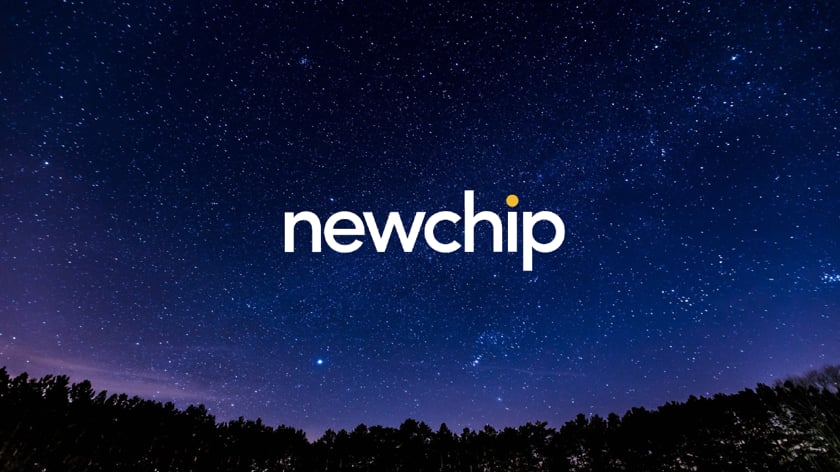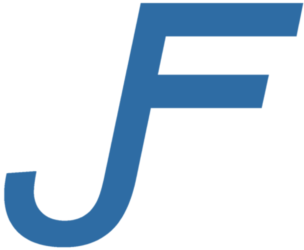
As a founder thinking about raising funds in the near future, I recently joined the November ’21 cohort of the Newchip Accelerator, and I’ve had positive vibes so far. However, because Newchip is very new (founded in 2019), finding information on the program was a little tougher than for some of the big name accelerators out there. I wanted to write this review of my take on the accelerator thus far to help others considering joining to have a third party review.
For my review, I will describe my first few weeks of experience leading up to and kicking off the program, as well as a few of the first interactions I’ve had in the weeks after kickoff. I’ll give my impressions of each phase, and end with some overall thoughts.
Phase 1: Outreach
Newchip does a lot of cold outreach on LinkedIn and other forums, and I was first contacted in this manner via a LinkedIn DM:
“Hi Jackson, I saw that you are in the EdTech space. I have been helping founders in EdTech for the past few years, and I’d love to connect and hear more about Edily Learning.”
The outreach was a little vague, but after reviewing the Venture Analyst’s connection with Newchip and looking at Newchip’s website, I was interested.
The Accelerator casts a broad net, and my cohort’s stats support that the program has grown quickly in two years: the November Pre-seed cohort had 77 founders, the Seed had 79, and the Series A had 15. They are working a large funnel strategy, and it seems to be working. That said, they mentioned that they accept fewer than 10% of the companies that apply, so despite the wide outreach, they are putting discernment into the next part of the process, the interview phase.
Phase 2: Interview phase
The whole interview phase went fairly quickly over the course of two weeks or so. I started with a single Zoom interview with the Venture Analyst who reached out to me on LinkedIn. This was an informal, verbal pitch of my business. I received an invite for a second interview within a day. The second interview was a more formal 10 minute pitch (I used slides) with time after for questions from the venture associate probing a bit into my business. I also had a chance to ask some questions about the program. I was a bit annoyed that they wouldn’t provide me a reference from someone who went through the program; they gave the excuse that “we’re protecting our founders’ privacy”, but I guarantee many of their founders would opt in to being references. Regardless, it was easy enough to find some references on LinkedIn and elsewhere, as I’ll go into in the next section. The day after my 10 minute pitch, I got an email welcoming me to the program! I did one follow-up call with the Venture Associate to answer questions and go over some of the details that hadn’t been clear before (i.e. payment) and then had until the end of October to make my decision for a November 11 cohort kickoff.
Phase 3: Due Diligence
As I started my due diligence process, I struggled to find a thorough third-party source or review that could guide me through what to expect. So I chatted with Newchip’s team, scoured a few review forums, reached out to members of the program I could find on LinkedIn, messaged my lawyers and mentors, and posted to a bunch of entrepreneurship Slacks hoping to find past founders who had gone through the program.
Eventually a common sentiment emerged from the outreach: Newchip is a strong option for self-motivated founders who want some structure and a few additional networked opportunities to get in front of investors. It’s a program you can tailor to your needs by reaching out to different people in the Newchip network. Every founder I personally spoke with said the program was worth it for them, but one reply to a LinkedIn outreach stood out:
“Hey Jackson! Couldn’t recommend it more. As always you get out what you put in, but would recommend it wholeheartedly.”
That said, there were also some naysayers. On one Slack, I was pointed (by someone not in the program) to this thread which showed some skepticism, although most of the comments there were written 1-2 years ago when Newchip was just starting. I also saw a couple founders on forums who said they had a meh experience with their mentors who were assigned to them. Finally, a decent number of the negative impressions I found were from people who say they “passed on the program because they were suspicious of a new accelerator you have to pay for.” However, when a person had actually been through the program, I mostly saw positive impressions mentioning they were able to take advantage of the resources.
Phase 4: Payment
Unlike many other accelerators, Newchip’s program doesn’t take equity up-front. However, while they sell themselves as “equity free,” they do have an equity option. There are two parts of “payment” to consider with Newchip. 1) the cash portion and 2) the optional warrant. For me, the cash portion was $5,000, and I opted for the warrant, which allows Newchip to invest up to $250k in your company at the same terms as a future investor, with a 20% discount (assuming the amount raised is a “Qualified Financing”, which I won’t go into here). It was possible to waive the warrant, but that added $10k to the cash price.
The warrant was the one piece of the deal that made me a little nervous; my lawyer specifically mentioned that the warrant might rub certain investors the wrong way since Newchip could potentially invest at the same time as a VC, but with a 20% discount. That discount is normally reserved for taking a risk associated with investing cash early, but in this case, was given as an incentive for Newchip to offer their accelerator program below the cost to run the program. In the end, I decided that the warrant was ultimately an opportunity for an investment, and that Newchip’s fundraising stats ($450+ in alumni dollars raised) show that their portfolio companies are fundable even with the warrants they offer.
One takeaway from my due diligence is that Newchip is a startup itself experimenting with its business model. I believe that’s why they are frustratingly un-transparent with the cost of the program on their website and in public info sessions. However, as a founder still figuring out pricing myself, I get that they’re experimenting. Previous founders I spoke with mentioned a completely different business model even 6 months ago: they saw a $20k sticker price for Newchip, but received a “scholarship” that required you to accept their warrant to take a variable amount between $15k and $20k off that cash price. They’re still experimenting with their framing. I hope they settle on a model soon though and become much more transparent.
As a quick aside, if you’re a fan of credit card bonuses, this is an excellent opportunity to open a business credit card to get the signup bonus. The Newchip team even let me put a deposit down with my personal credit card up front, but then refunded me so I could use the business credit card when it arrived a couple weeks later.
Phase 5: Kickoff
This is where I got excited. The kickoff was well organized, professional, and impressive. Getting to see the leadership behind the program definitely set some of my uncertainties about the program aside. The leadership team, especially Armando Carvajal (VP of Product) and Kyle Croyle (VP startup success), had impressive vision and startup experience respectively. Given Kyle’s 11 years of startup experience and 6-7 rounds raised in his own founder journey, it spoke volumes to me that after going through an early version of the Newchip Accelerator himself in 2019, he returned to Newchip to join the staff a couple years later.
The majority of the kickoff went through features and benefits of the program. Newchip focuses on fundraising preparedness, and there are a lot of opportunities to take advantage of. The key offerings include online curriculum, cohort small group sessions, 1:1 industry mentor assignments, pitch deck reviews, pitch coaching, business advisory sessions, an investor relations department in charge of intros to investors, and an online demo week. There are also a lot of partner discounts and resources; I was most excited about the $10k in AWS credits, which was in addition to a previous $5k of credits from my MBA program, so they’re additive! Other platforms for CRM, cap table services, payment processing, etc. also give discounts or credits.
Phase 6: Program Curriculum
While I covered many of the pieces of early curriculum in my MBA entrepreneurship and VC classes, I was impressed by the breadth of the program curriculum. Even with previous exposure, this is a useful one-stop shop for review of most of the topics I covered in multiple classes. Lessons are mostly text-based with a few videos, and are organized by which topics will be discussed in the upcoming cohort session, or “Mastermind.” The first pieces of curriculum to be completed prior to my first Mastermind, for example, focused on pitch decks, legal, fundraising, and investor development and management. In future months, curriculum covers topics across business strategy, data room preparedness, negotiation, product development, sales, partnerships, culture topics, operations, and exit strategies.
Phase 7: Mastermind
In my first session, my Mastermind group was made up of a Venture Fellow lead (a second year Booth MBA student), 7 founders, and myself. I thoroughly enjoyed getting to hear about other founders’ businesses and current progress. I could tell that they matched our group on certain themes (Edtech, consumer-facing, etc.). So they try to put companies with similar problems together.
I’m a community-driven individual, so having a small group to share wins and discussions with I hope will be extremely helpful. The first session included a lot of introduction time, and a bit of pitch deck discussion amongst the group, but I look forward to getting into meatier topics in future sessions.
Overall early impressions
There are several things that make me excited about the program thus far, but there are still questions in my mind.
Probably the biggest question mark for me at this point is the warrant. I hope this is not something that will be unattractive to future investors and will create headaches later. Investors already pass for simpler reasons. However I think it’s on me and my team to make sure our product is compelling enough that the warrant isn’t an issue for any investor; ultimately it is an opportunity for cash investment. I also think Newchip could do more to create opportunities to intermix amongst founders outside of the Mastermind sessions. My early impression is that it’s been a little quiet in the first couple of weeks for an accelerator that has ~150 people per cohort. I reached out to Armando asking if Newchip is adding a Slack and he immediately got back to me:
Yes, we’re actually working on a community initiative right now that may include a Slack (or similar) solution rollout. More to come in the next month or so!
So I’m excited to see what community initiatives the team comes up with.
I’m feeling positive about opportunities to meet great people in this program. I can tell there are many opportunities to reach out and get advice through the Newchip network. I’m especially excited about having a regularly scheduled program with an industry mentor, and I’m looking forward to seeing what kind of mentor I get paired with. I’m also really excited about the structure Newchip puts into fundraising preparedness. Fundraising has been a little bit of an intimidating prospect for me as a first time founder, so having a checklist for all the components of a data room and being required to put that together so early on in the program is helpful. I may have had certain components like the pitch deck already, but the mechanisms for improvement like pitch deck review, pitch practice, and sessions to refine my story are all encouraging for me. Overall, my goal is to make sure I’m proactively taking advantage of Newchip resources multiple times per week.
That’s it for now! Stay tuned as I report back with updates on the program in a few months!

